

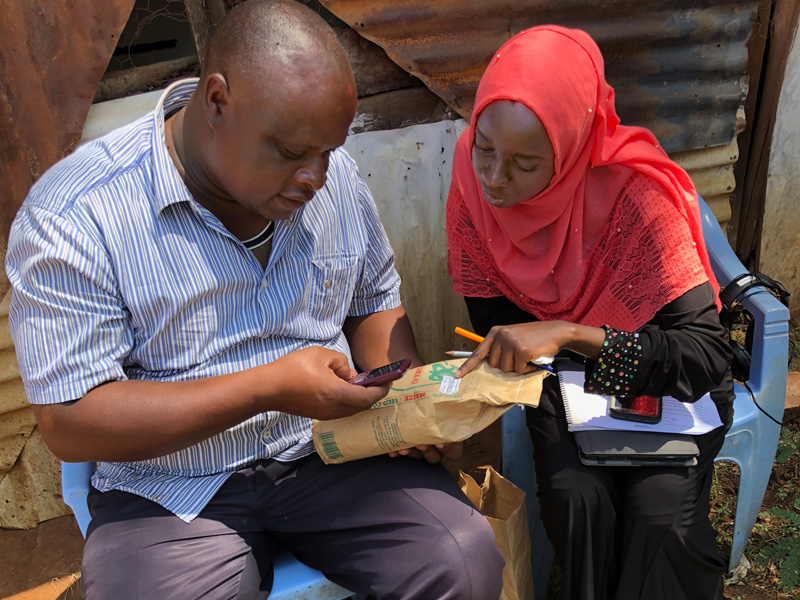
Genuine or fake seeds?
Photos courtesy of Leah Palm-Forster December 17, 2018
UD researchers ‘dig in’ to how seed fraud impacts Kenyan farmers
For farmers, a productive harvest can mean money in the bank. Poor yield due to drought, pests and other environmental factors, on the other hand, can threaten livelihoods.
Improved seed varieties have been developed to address these problems for many agricultural crops.
Yet while agricultural production in the United States continues to rise, in areas of Africa, such as Kenya, gains in agricultural production have been more limited. This is particularly true of corn, or maize, productivity in the Nyanza Province, which occupies the largest share of the region’s farmland compared to other crops and is a staple food for more than 90 percent of the area’s population.
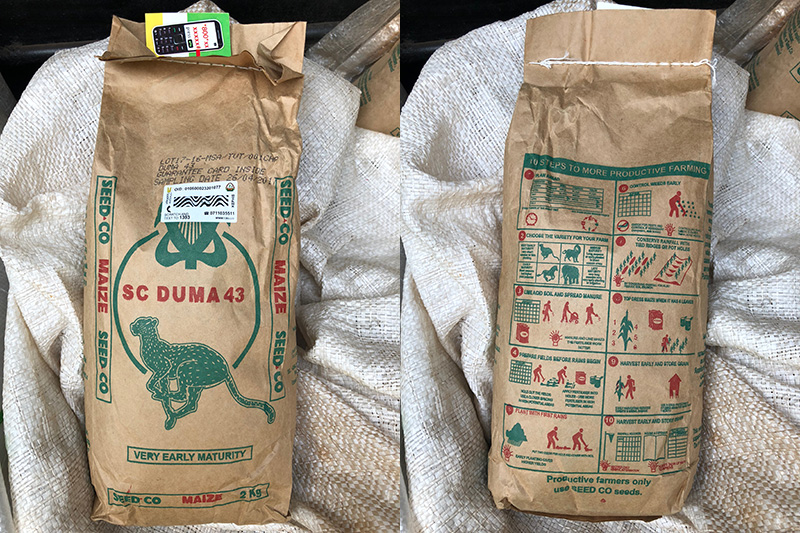
According to University of Delaware alumnus Mariam Gharib, a Kenya native, one possible reason for this production lag may be seed fraud, a practice where plant seeds marketed as high-performance have actually been tampered with or been replaced with inferior products.
“Farmers in Kenya typically do not know if the seed that they are buying to grow their crops is genuine,” said Gharib, who earned a master’s degree in agricultural and resource economics from UD’s College of Agriculture and Natural Resources (CANR) earlier this year as one of three inaugural Borel Global Fellows. The master’s program, a partnership between CANR and the Alliance for a Green Revolution in Africa, is designed to build the capacity of African students to address problems related to food security in Africa’s agricultural sector.
Estimates of how much seed fraud actually occurs in Kenya vary wildly. And although seed companies have started marketing improved seed varieties with novel features to ensure the product’s authenticity, increased concern about the prevalence of fake seed often limits farmers, who have very small farms, from risking the investment in newer corn seeds.
Farmers typically buy seed in local markets or at retail stores, called Agrovets, that carry goods like seeds, fertilizer and pesticides from suppliers. An average packet of certified corn seed sells for around 550 Kenyan shillings (approximately $5.50 U.S.) in the Nyanza Province. Local seed is cheaper, about 100 to 150 Kenyan shillings per packet, but not nearly as productive as certified seed specifically developed for the region.
“If they can get the money together to buy certified seed there could be a big payoff because it would be more productive, but if the farmer gets the money and the seed is inferior or fake, they risk losing money,” said Leah Palm-Forster, assistant professor of applied economics and statistics and Gharib’s adviser.
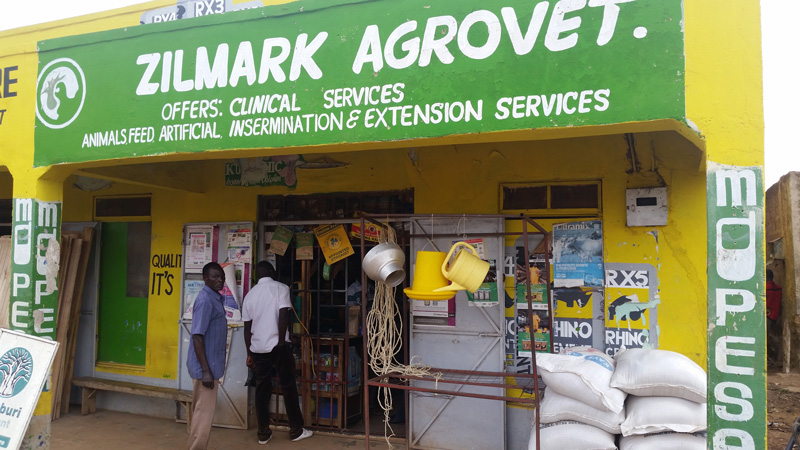
Understanding how farmers make decisions
To learn how the farmer’s perception of fraud influenced their willingness to invest in high-quality seed, the researchers focused on understanding the value Kenyan farmers placed on certification features presently available on a popular brand of corn seed.
Palm-Forster and Gharib worked with local village chiefs, leaders and elders to identify study sites and village households to randomly sample, then surveyed over 260 farmers. Each farmer was paired with an individual who spoke Luo — the local language — to guide them through an economic experiment designed to measure their willingness to pay for different packets of seed. Farmers received 900 Kenyan shillings for their participation, which they could later use to buy seed. Before stating how much they were willing to pay, half of the participants learned how to confirm that the certified seed packets were high-quality by watching a video the research team had developed with local partners.
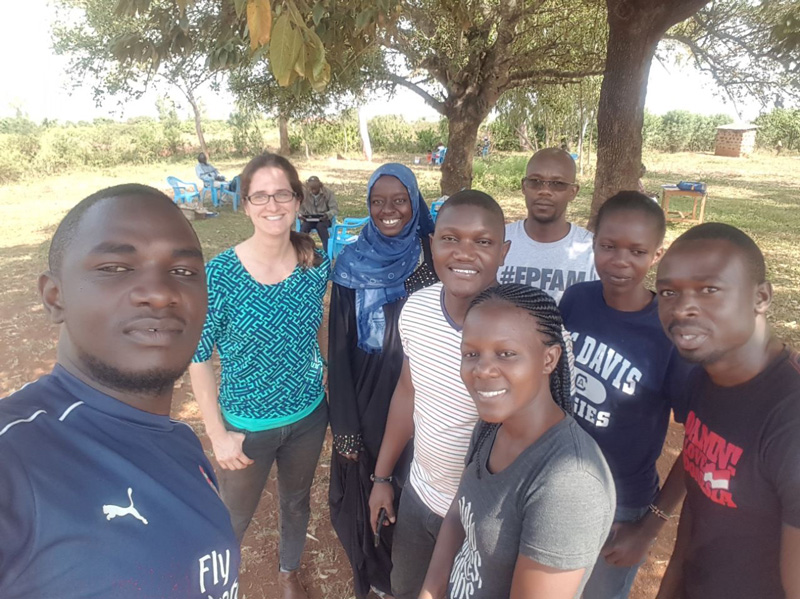
Each farmer was shown six packets of corn seed: five packets of improved, certified seed and one local seed variety (typically recycled seed found in a local market). One of the five certified seed packets was purchased directly from the seed company headquarters in Nairobi; three of the four remaining certified packets (all from local community Agrovets) were damaged in some way.
The farmers were asked how much they would pay for each packet, including any price reductions for damaged seed packets or those without certification features.
“When damage occurs, farmers don’t have any way to know whether the cause is a harmless issue with transportation of the packets or if the packet has been split open, the seed poured out and a cheaper seed put in,” Palm-Forster said.
Findings reveal training is key in noticing fraud
The researchers found that farmers were more willing to pay for certified seed that came directly from the seed company versus seed packets that came from local suppliers, suggesting that there may be a concern about what happens lower in the supply chain.
They also learned that training was key to whether or not the farmers discounted packets with ripped labels, tampered dates or scratched certification codes, suggesting that farmers without this knowledge are not paying much attention to these attributes of the packet.
And, while most study participants had a cell phone, few if any of the farmers knew how to use the certification labels on the seed packets. For example, scratch-off labels on the packets reveal certification codes that farmers can verify by sending a text to a special phone number. In return, the farmers receive a message confirming that the certification code is valid and stating the date that the seed was sampled at the seed company.
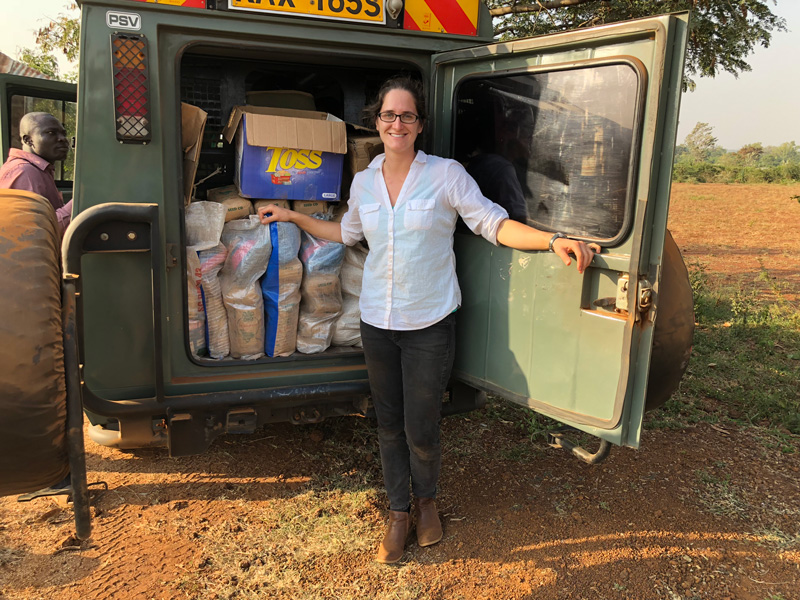
Language was a barrier, too. Information on the seed packets appeared in English, one of two official languages in Kenya, along with Swahili, but most of the villagers primarily spoke their local language. Many rural farmers cannot speak, much less read, English, Palm-Forster said, making it difficult for them to follow written instructions on the seed packet.
“Once the farmers understood how the certification features on the packet worked, the language barrier was less of a problem because they only needed to text numbers on the certification code to receive confirmation that their seed was valid,” Palm-Forster said.
The researchers plan to share their findings with local partner organizations already working on this issue, such as Alliance for a Green Revolution in Africa (AGRA), and with pertinent research or government groups that inform agricultural policy in Kenya.
“The rewarding thing was to come up with policies that can be incorporated to protect farmers,” said Gharib, who now works as a monitoring, evaluation and learning officer for the International Maize and Wheat Improvement Center in Kenya.
Funding for the work was provided by the College of Agriculture and Natural Resources (CANR), the Borel Global Fellows program and CANR’s Departments of Applied Economics and Statistics and Plant and Soil Sciences.
Other project collaborators include Kent Messer, the S. Hallock du Pont Professor of Applied Economics for the Environment, and Randall Wisser, associate professor of plant and soil sciences at UD, and Travis Lybbert, professor of agricultural and resource economics at University of California, Davis.
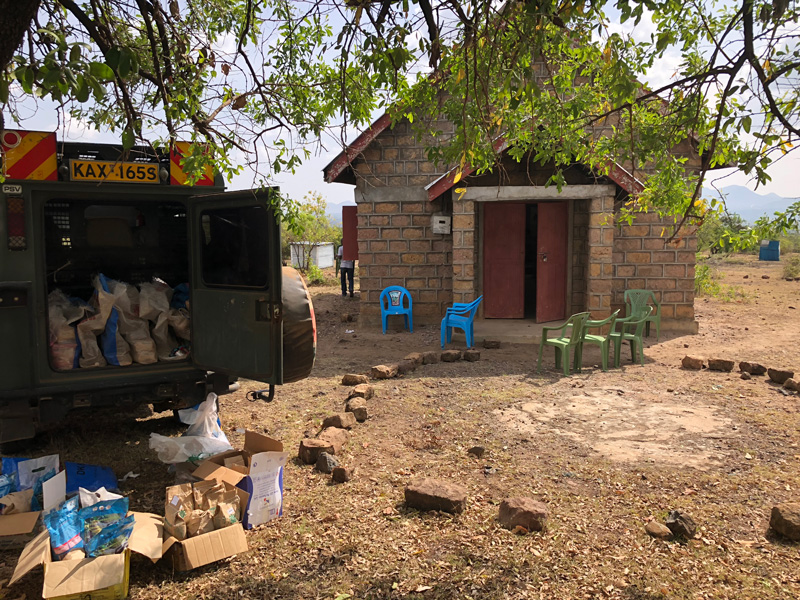
Contact Us
Have a UDaily story idea?
Contact us at ocm@udel.edu
Members of the press
Contact us at 302-831-NEWS or visit the Media Relations website

